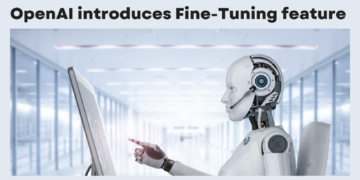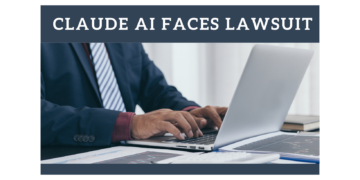In the ever-evolving landscape of Artificial Intelligence, companies continue to face legal challenges. One of the companies facing legal actions is Anthropic, the creator of the popular Claude AI chatbot, which is now facing a lawsuit alleging copyright infringement.
The Allegations Against Anthropic
A group of authors has filed a lawsuit against Anthropic, claiming that the company used pirated copies of copyrighted books to train its AI model, Claude. The lawsuit alleges that Anthropic engaged in “large-scale theft” by leveraging these pirated works without obtaining proper authorization or compensation.
The Precedent
This is not the first time an AI company has faced such accusations. OpenAI, the creator of ChatGPT, has been embroiled in similar legal battles. However, the lawsuit against Anthropic marks the first instance where authors have directly targeted the company and its Claude chatbot.
How Did Anthropic React?
Despite positioning itself as a responsible and safety-focused AI developer, Anthropic has found itself at the center of controversy. The lawsuit alleges that the company’s actions contradict its stated values, prioritizing profit over ethical considerations. The heart of the legal dispute lies in the use of copyrighted material for training AI models. Anthropic, like other AI companies, is likely to invoke the “fair use” doctrine as a defense. This legal principle allows for limited use of copyrighted material for purposes such as teaching, research, or criticism.
However, the lawsuit challenges this argument, asserting that using pirated books for AI training does not constitute fair use. The authors argue that AI models learn in a fundamentally different way than humans, who typically access copyrighted material through legal channels.
Implications for the AI Industry
The outcome of this lawsuit could have far-reaching implications for the AI industry. If the court finds in favor of the authors, it could set a precedent that requires AI companies to obtain explicit permission or licenses before using copyrighted material for training their models. This could significantly increase the costs and complexity of AI development, potentially slowing down innovation in the field. On the other hand, a ruling in favor of Anthropic could provide some legal clarity for AI companies, but it could also raise concerns about the potential for unchecked exploitation of copyrighted works.
The lawsuit against Anthropic highlights the complex legal and ethical challenges posed by the development and deployment of AI technology. As AI continues to advance at a rapid pace, it is essential to establish clear guidelines and regulations to protect the rights of creators while fostering innovation.



























